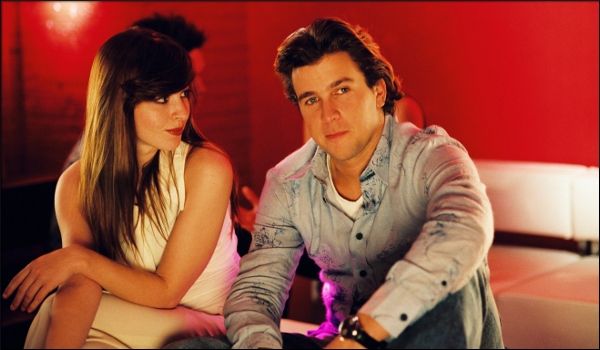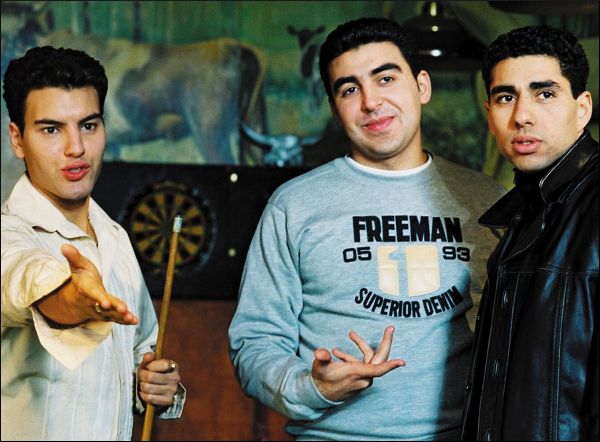The title of this film – Shouf Shouf Habibi! (Hush Hush Baby!) – has nothing in common with the movie itself, but it doesn’t have to: it’s catchy, even for people who don’t speak Arabic. It was the first movie to describe the life of Moroccans in the Netherlands, and it was meant to attract both Moroccan and Dutch audiences to theaters. We are made to laugh at jokes about Moroccans, at the desperate attempts of a father to arrange a marriage for his westernized daughter, and at all the ways in which the principal character, Ap, gets himself in trouble. This is not a melancholic film about the problems of integration, but a fresh multicultural comedy. All stereotypes about Moroccans are featured and ridiculed, and when the movie does go somewhere serious, it does so without doing away with the comedy.
"The title of this film has nothing in common with the movie itself, but it doesn’t have to: it’s catchy, even for people who don’t speak Arabic."
Ap is a young man of Moroccan descent born in the Netherlands who faces a fairly simple choice: he can play pool and perform small robberies once in a while with his friends or do what his father would want him to do, “become serious,” get a good job, and search for a bride in Morocco. Ap would like to have a good job, so he starts visiting a temp agency. He explains to the guy in the office he would like a job, but as an actor in Hollywood. His older brother Sam is a police officer and more Dutch than Moroccan, a “cuddle Moroccan” as Ap calls him. Sam gets Ap a job “with a desk and such,” and Ap sticks it out for just one day, but a bank robbery with his friends is more appealing.

Meanwhile, Ap’s little brother Driss blackmails his sister Leila and other Moroccan girls at school, capturing whatever their fathers are not supposed to know about them with a little camera. His mother knows exactly one Dutch sentence – “isj good” – , which gets her the wrong eye glasses in a store, and his father doesn’t speak any Dutch at all. There are a couple of well-written jokes throughout the film, like when Ap steals a quad bike from a little kid, who later has his revenge when Ap is trying to impress his new boss at a butcher shop; or when Ap’s friends think he told on them to the police, so they push him into a car to interrogate him like professional gangsters.
"Arabic conversations are subtitled, while conversations in Dutch between Arabic characters portray various accents specific to Arabic members of Dutch society, who use grammar and words as if they were speaking Arabic but to formulate Dutch sentences."
But not everything in Ap’s life is funny. When Leila strongly opposes her dad’s attempts to get her married to a Moroccan boy, she flees to stay with her Dutch friend Daan, becoming a “dirty whore” in Ap’s eyes. Traditional Moroccan mores predominate, and he hits her hard on the face. It becomes Ap’s job to uphold the family’s honor, so he goes to Morocco to find himself a Moroccan wife. The movie is spoken in both Dutch and Arabic, which makes it more believable. Arabic conversations are subtitled, while conversations in Dutch between Arabic characters portray various accents specific to Arabic members of Dutch society, who use grammar and words as if they were speaking Arabic but to formulate Dutch sentences. Some of their expressions are also derived from Arabic and are unknown in Dutch, which adds to the film’s comedy.




